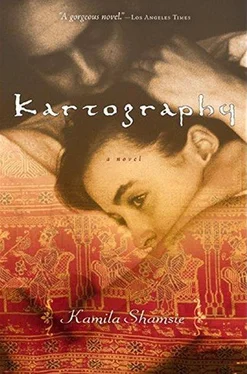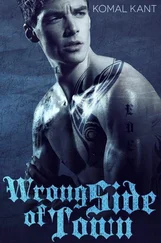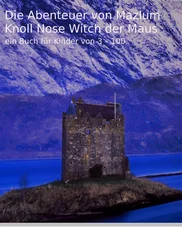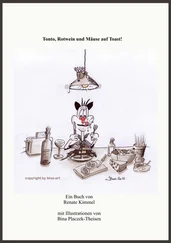Sonia called me late one night. ‘Just so sick of it. Everyone is gloom and doom and harpoon happiness. But just listen to what happened to me this evening. Ama and I had gone to my grandparents’ house for dinner — Aboo’s in Islamabad, and who ever knows where Sohail is these days? — and as we were walking to our car to leave, this man, real chichora type, leapt out of the shrubs, caught Amma’s wrist and said, “Give me your car-keys.”’
‘No!’
‘Yes, na, I’m telling you. So Amma became suddenly hysterical and she’s trying to find the key in her bag but the clasp is so complicated it takes real techknowhow to get it open, and even when she finally manages to do that her hands are shaking so much that she can’t really find anything, so then the man starts to put his hand down his shalwar and said, “Hurry up and give me the keys or I’ll take out my TT.” And Ama went completely mental and started throwing the contents of her bag at this guy, yelling, “No, no, anything but that,” and the man got such a shock, what with Ama and also the neighbour coming to see what the commotion was all about, that he ran away. I turned to Ama and I said, “You know, a TT is a kind of gun,” and she said, “Oh, thank God, I thought he was going to show us his privates.”’
I reminded Sonia that before this summer we used to be able to laugh without consciously thinking, Now I’m laughing. Now the suffocation is gone from my lungs for a moment.
She reminded me there hadn’t been much cause for laughter in the winter either.
All mobile-phone services had been suspended because there were strong indicators that such a mode of communication aided terrorist activities.
My car developed a flat tyre when I was driving home from the Club. When I got out of the car to check it, a Suzuki van stopped and three men got out. A cyclist pulled over beside me. A fruit seller walked across the street towards me. I knew why they stopped, I knew what they were going to do. They told me to sit back in the car, with the air conditioning on. It was a hot, sticky day. They changed the tyre for me, and then they all left.
It was exactly the sort of thing you’d expect unknown men to do in Karachi.
I walked into Zia’s room as he was packing to return to New York. He lugged his suitcase off his bed, making room for me to lie down. But I felt awkward, said I should leave. He said he wasn’t planning to come back to Karachi and who knows when he’d see me again. So how much did it really matter what happened between us, this once?
I said, ‘Let’s go for a drive. I don’t feel comfortable here, having this conversation, with your parents maybe walking by on the other side of the wall.’ We drove out in his Integra, though all summer I had kept my movements confined to houses and squash courts as much as possible.
I felt no pleasure, no anticipation, as we drove, just some numb sense of inevitability. Zia’s face unreadable. Where were we going? How deserted the streets were, so soon after sunset. Near the submarine roundabout he turned off the main road. We were going to one of Sonia’s father’s offices, the one closest to home. Desk, phone, fax. Makeshift work space for days when it was too dangerous to head to offices in other parts of town. Green carpet. Nothing of real importance there, no caretakers and guards keeping watch. Years ago, Sonia had showed us we could unlock the door with a penknife. Zia swerved, without slowing, around a stalled car blocking the road. A man stepped out from behind the car, right into the path of Zia’s car. Zia spun the wheel. Braked. The man, uninjured, pointed a gun through the window.
‘It must be fate,’ he said.
It was the car thief.
He directed us to get out of the car.
‘I’m sorry, I’m sorry, we’ll get you a job. I thought my friend had arranged it.’ Zia was sweating in the still night air.
The man shook his head. ‘Your friend did arrange it. Lohawalla Sahib tracked me down, found me a job. I owe him a lot. But my brother’s been shot. You don’t need to know details, but he’s been very angry, done a lot of foolishness. Still, he’s my brother. And if I don’t get him to the hospital he’ll die. But if I try driving from here to there, the police will stop me, and then they’ll recognize him. They won’t stop a car with a girl in it.’
He opened the back door of the stalled car. The brother lay there, unmoving. The first-aid box from Sonia’s father’s office was open next to him, its contents strewn around the car. Zia’s expression passed from fear to something more complicated, something that had to do with the shadows he’d always lived among. He took the man’s arms and started to pull him out. ‘Help me, Raheen.’ The car thief still had his gun trained on us. I caught the brother’s feet as Zia pulled him further and further out of the car. That wasn’t sweat, as I had first thought, on the man’s shalwar-kameez. We put him in the back seat of Zia’s car and drove to the government hospital. The private hospitals wouldn’t deal with a gunshot wound. There were Ranger vans everywhere, but no one stopped us.
Outside the hospital, the pavement was covered with bodies, all lined up side by side. The car thief — Mohommad — laughed to see me cover my eyes when I saw them. ‘They’re sleeping,’ he said. ‘They have relatives in there, and they don’t have money for hotels or even transportation. So they sleep here at night, and in the morning they’ll see their family members, or find out if they’ve died.’
In the emergency ward, chaos. So many people there was no room to bring a stretcher through. Zia and Mohommad carried in the brother, conscious now, and slumped him against a wall. No beds available, not even a chair. Not nearly enough doctors. I find myself moving away from the three men, even though I should be telling Zia we can go home now. I am moving among groans and cries and sights I will never forget. Surely someone should be moving faster. Surely the world should be moving faster. A man is talking to a woman who has a crying toddler in her arms. The man is holding a syringe, though he is clearly not a doctor. But he speaks to her and she nods. When he empties his syringe into the child’s vein, pain eases off the child’s face. The woman holds her arm out, too. The man leans very close to her. Some sort of bargaining will go on. A man in a white coat pushes past me. I hear him say, ‘We’ve run out of blood.’ Another replies: ‘Scrape it off the walls of the operating theatre.’ A sleek cat pads past me. This, more than anything, makes me want to throw up. Zia catches my arm. I say, ‘We should give blood.’ He tells me we can leave. I open my mouth to say yes, but a doctor has overheard my previous comment, he’s asking me what blood type I am. I tell him. He asks Zia. Zia pretends not to know, but I know that he’s lying and I tell him so. He pulls his blood-type card out of his wallet. The doctor says we’re both needed to give transfusions, immediately. But shouldn’t someone test our blood first? A patient lying nearby says, ‘Test for what? Fatal diseases?’ There is much laughter around him. I have lost sight of Mohommad and his brother. I think of them as my allies now. No sheets on the bed I am made to lie on. The needle plunges in while I am looking away, and I panic: was it sterilized? Was it new? No one has time to answer me. A man I don’t much like the look of is in the bed beside me. He’s been in a shoot-out. I hear someone say he’s killed people. ‘Was it sterilized?’ I keep asking and someone says, ‘Yes, yes,’ but the tone is impatient. What can anyone do about it now if it wasn’t? Zia comes to find me. His head is spinning. They took more blood, he thinks, than is safe. I ask him about the needle. He hadn’t thought to check. We dare not think about it. We ask about Mohommad and his brother. No one knows. But we don’t leave. We ask every doctor and orderly who passes by about the man with the bullet in his abdomen. Someone tells us Zia’s blood couldn’t save the girl on the bed beside him. My man, they think, will live. His mother is at the hospital. She finds me. She tells me I might think my blood has gone to waste, because it is a certainty, not just a probability, that sooner or later, probably sooner, another bullet will find its way to her son’s heart. ‘Then your blood will be spilled on the streets of Karachi. But for every day of extra life you’ve given him, I thank you.’ We see Mohommad at last. His brother is dead. We offer to stay. He shakes his head. He asks me, ‘Where’s that hero friend of yours? America or England?’ I say I don’t know. He asks me the hero’s name. I say, ‘Karim.’
Читать дальше












